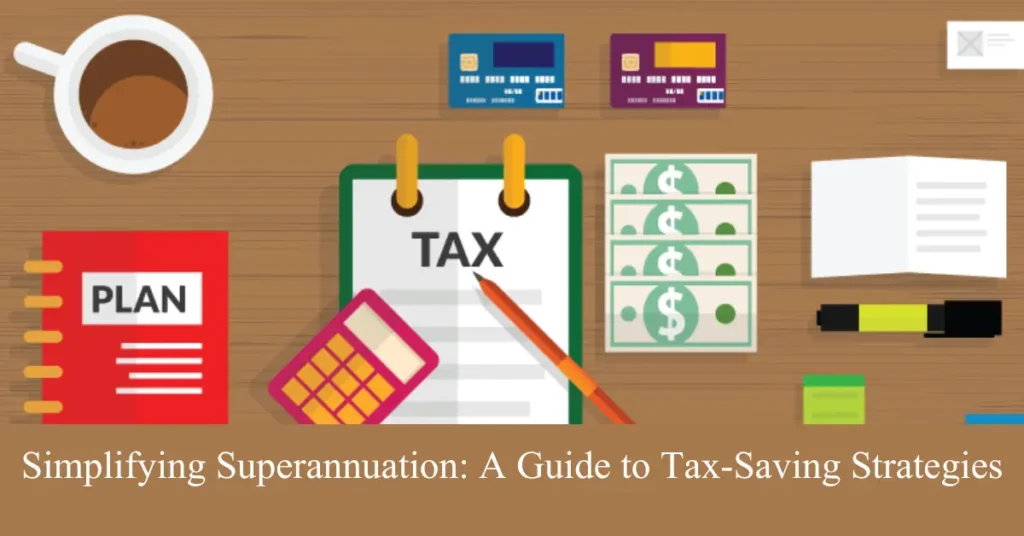Tax season often feels daunting, but what if it could be a chance to secure your future while lightening your current tax load? Enter superannuation – a powerful tool for building retirement savings with tax advantages. In this article, we’ll explore how superannuation can help you save on taxes and protect your financial future.
Understanding Superannuation: Superannuation, or super, is Australia’s long-term savings plan for retirement. It involves regular contributions from employers and employees, invested to grow over time. Superannuation offers tax-efficient retirement savings, with contributions and earnings taxed at concessional rates, setting the stage for financial stability later in life.
Tax Benefits of Superannuation Contributions: Superannuation’s tax appeal lies in concessional contributions, sourced from pre-tax income. These contributions lower taxable income, reducing your tax liability. Increasing concessional contributions can lead to tangible tax savings. Common forms include employer contributions, salary sacrifice, and personal deductible contributions, which a knowledgeable Tax Accountant can advise you on.
Claiming Tax Deductions for Personal Contributions: Another tax-saving avenue is claiming deductions for personal super contributions. Whether self-employed or unemployed, directing personal contributions to super allows you to claim tax deductions, lowering taxable income and potentially moving you into a lower tax bracket, resulting in significant savings.
Taking Advantage of Government Co-contributions: Lower to middle-income earners can benefit from government co-contributions, boosting super savings. By making personal after-tax contributions and meeting eligibility criteria, the government matches contributions up to a set limit. This incentive helps grow retirement savings while reducing taxes.
Utilising Spouse Contributions Tax Offset: For couples with income disparities or a non-working spouse, spouse contributions offer tax advantages. By directing after-tax contributions to your spouse’s super, you may qualify for a tax offset of up to $540 annually. This strategy not only saves taxes but also promotes equal retirement savings.
Planning for Retirement: While super offers immediate tax benefits, its primary goal is securing retirement. By leveraging tax-effective contributions and savvy investments, you can build a substantial retirement fund while minimising taxes. Start retirement planning early to harness super’s potential for long-term financial security.
Conclusion: Superannuation isn’t just for retirement savings – it’s also a powerful tax-saving tool. Through concessional contributions, deductions for personal contributions, and government incentives, you can maximise super savings while cutting taxes. Whether an employee or self-employed, superannuation offers opportunities to trim taxes and safeguard your financial future. By speaking with a Tax Accountant today, you can start exploring superannuation’s tax-saving potential and charting a path to a secure retirement.
